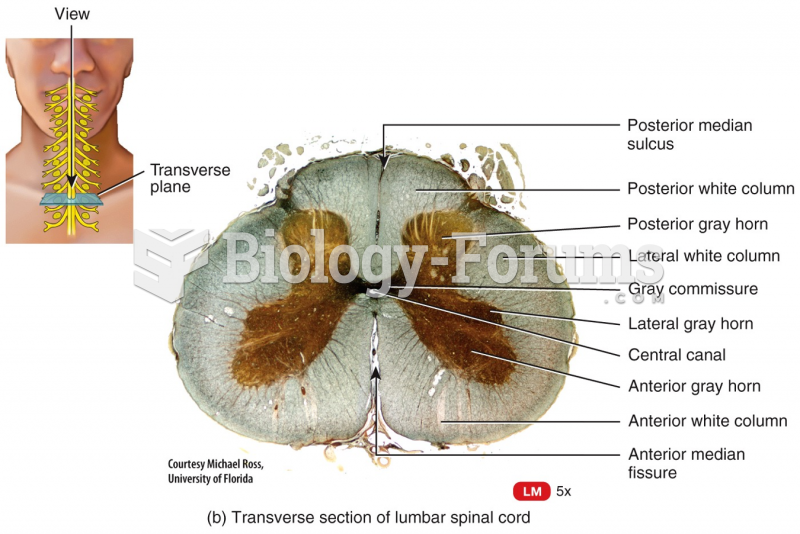|
|
|
Did you know?
People often find it difficult to accept the idea that bacteria can be beneficial and improve health. Lactic acid bacteria are good, and when eaten, these bacteria improve health and increase longevity. These bacteria included in foods such as yogurt.
Did you know?
Green tea is able to stop the scent of garlic or onion from causing bad breath.
Did you know?
In 2006, a generic antinausea drug named ondansetron was approved. It is used to stop nausea and vomiting associated with surgery, chemotherapy, and radiation therapy.
Did you know?
Human kidneys will clean about 1 million gallons of blood in an average lifetime.
Did you know?
Blood is approximately twice as thick as water because of the cells and other components found in it.






